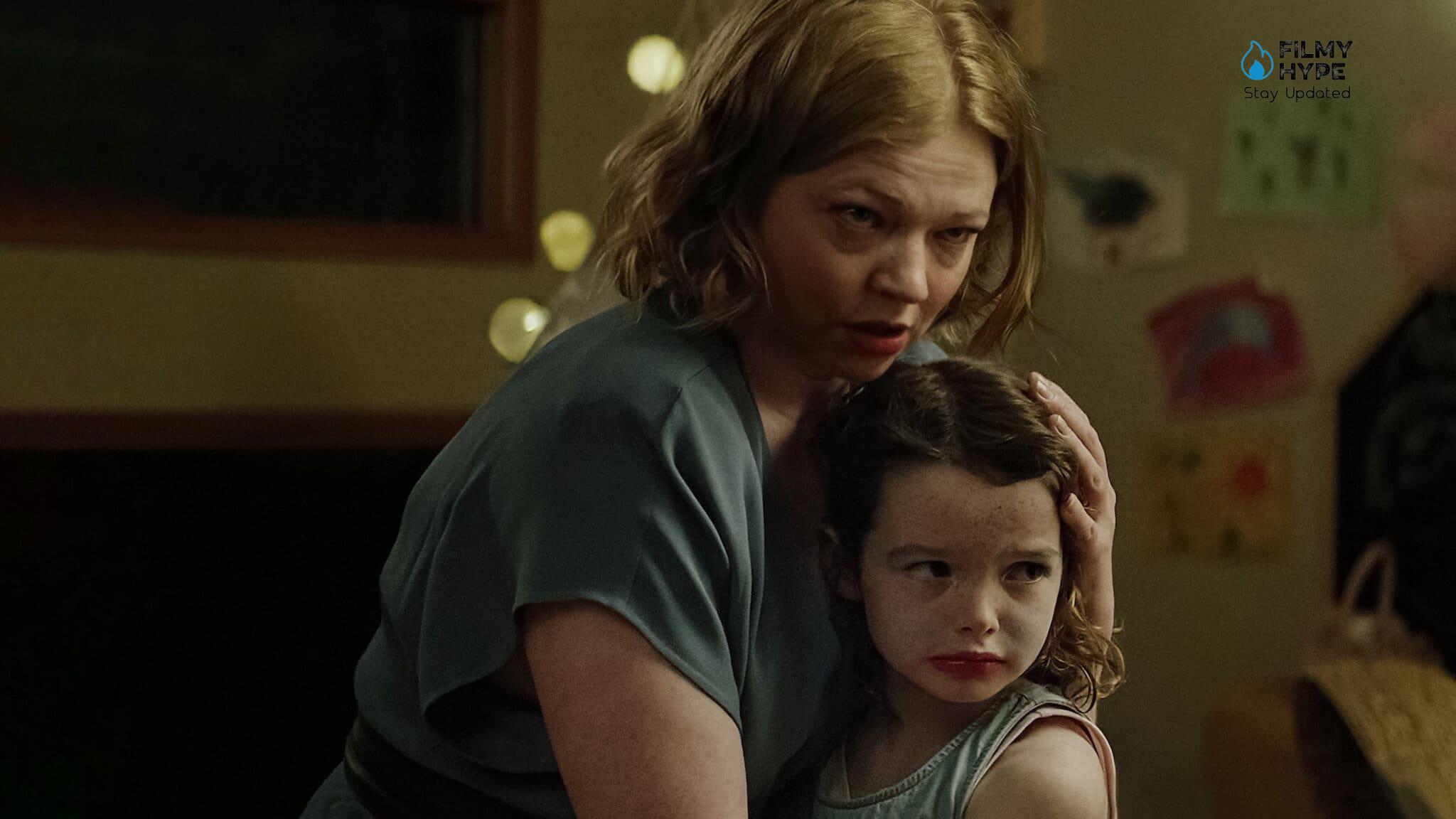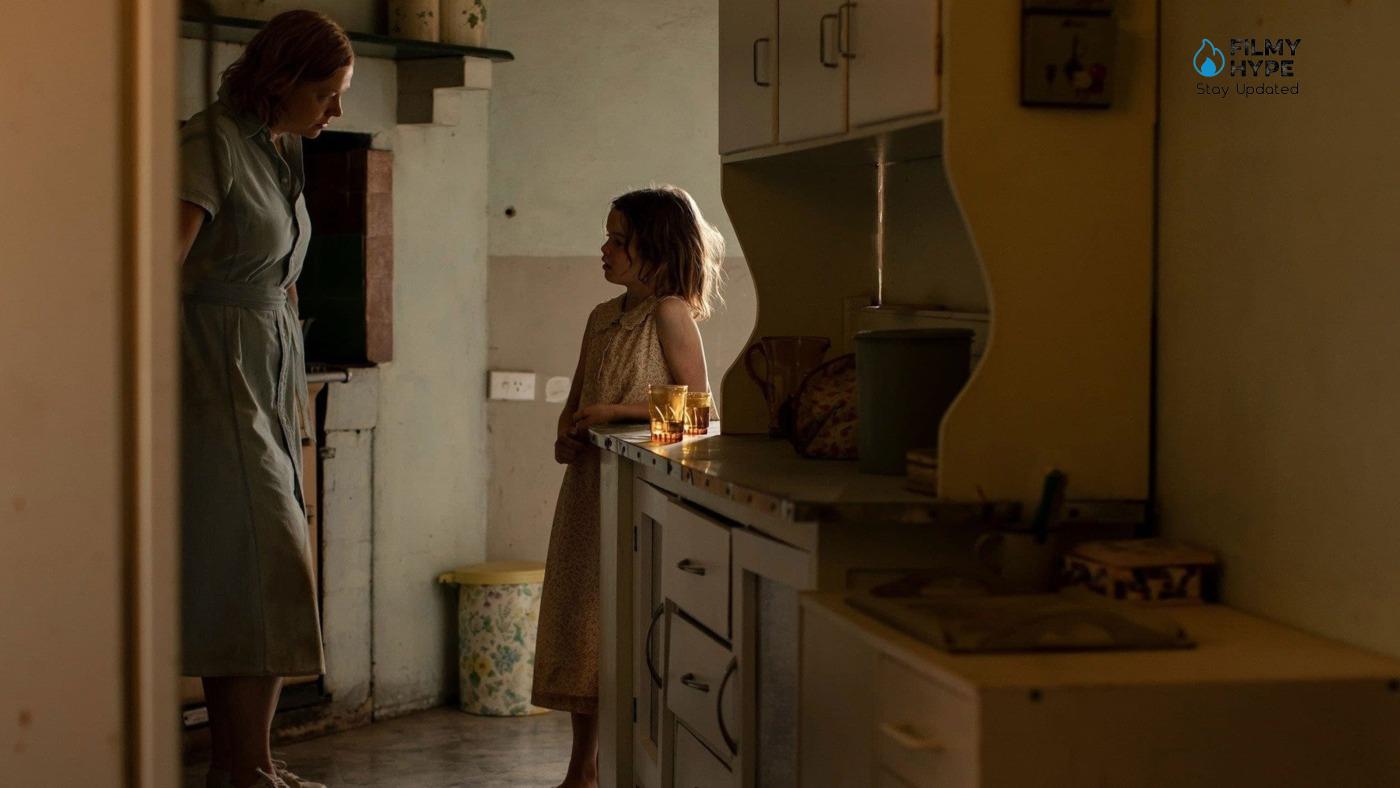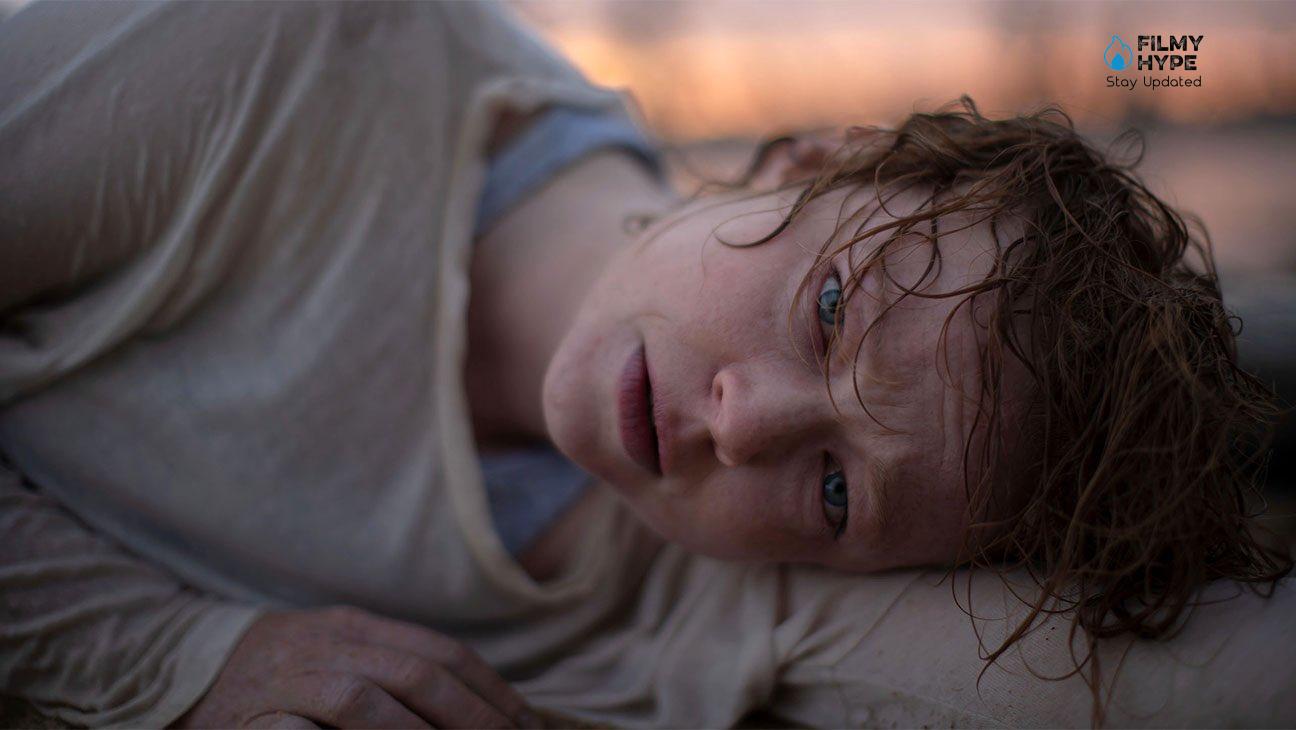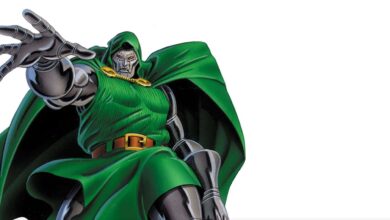Run Rabbit Run Ending Explained: What Really Happened to Alice? Are Mia and Alice Leaving Together? Mia’s Drawings Explained?
Run Rabbit Run is a horror directed by Daina Reid, available on Netflix, starring Sarah Snook and the very young Lily LaTorre. The film is set in Australia, which, as we explained to you in our review of Run Rabbit Run, turns into the perfect location for a story of this kind, creating an apt parallelism between wild nature and motherhood full of chiaroscuro. Sarah Snook plays an estranged mother, who raises little Mia with many difficulties. The woman is trying to overcome the mourning for the recent death of her father, who also left her a mother in a nursing home – with whom she hasn’t had a relationship for years – to take care of her. Sarah’s past was also marked by the disappearance of Alice, her younger sister when the two were both children. The story kicks off on Mia’s seventh birthday, who suddenly begins to exhibit strange behaviors: after adopting a white rabbit found in the garden, the little girl says she wants to be called Alice, like the aunt she never knew. She also claims that she wants to meet Joan, her grandmother, who she believes is her real mother. In our explanation of the ending of Run Rabbit Run, we will go into detail about what happens in the final portion of the film, from what happened to Sarah and Alice as children to the fate of Mia.

Run Rabbit Run Ending Explained: Summary Recap
Sarah (Sarah Snook) is a doctor who raises little Mia (Lily LaTorre) with the help of her ex-husband. However, things for the woman have not been going well lately, Sarah is facing mourning for the recent death of her father, who has also left her with the responsibility of her mother, relegated to a nursing home. The relationship between the two has deteriorated over the years, since the disappearance of the woman’s younger sister, Alice. When on the occasion of her seventh birthday – which is exactly the age Alice was when she was last seen – Mia begins to talk about her grandmother as if she knew her, even if she has never seen her, and to identify increasingly with her aunt missing, Sarah is reluctantly forced to face the painful memories of her past. What happened to Alice? Whose rabbit is it that appeared one day in front of the woman’s house? Why is Mia acting so strange?
Run Rabbit Run Ending Explained: Sarah and Alice
Sarah and Mia travel to her old childhood home, where she grew up and where her sister is missing. Sarah would like to clear out the house and prepare it for the sale, but her mother Joan is still waiting for the return of little Alice and does not want to get rid of her property. The permanence in the house full of memories, and the fact that Mia continually claims to be Alice, put her in a lot of difficulties: dream and reality mix, making it difficult for her to distinguish what is real from what is not. From the woman’s stories, we discover that Alice disappeared suddenly and that her parents never gave each other peace, convinced that sooner or later they would find her. Alice’s disappearance has caused great trauma to Sarah, who does everything to forget what happened and which marked her childhood. Gradually, continuing to watch the film, we realize that the relationship between the two sisters has always been rather conflicting, they often argued and when they played together, sometimes Sarah locked up Alice leaving her alone for hours. We also discover that the youngest, unlike the eldest, had a great love for animals, and was particularly against the fact that Sarah and her father set traps for the rabbits that infested her property.
What Really Happened to Alice?
At the end of the film, we finally discover what really happened to Alice, Sarah has a sort of vision, which mixes past and present, and which allows us to see what happened when she and her sister were children. Sarah as a child has locked Alice in a closet in her father’s tool shed: when she later frees her from her, her angry sister attacks her and clasps her hands around her neck. To break free from her grip Sarah hits her on the head with a rabbit trap. In a state of shock Alice runs off to get away from her sister: the two chase each other up to the precipice that marks the edge of their property, and after a moment’s hesitation Sarah pushes Alice into the void. Sarah then tells her parents that her little sister ran away from home, never admitting what she did to her. Throughout her life, the woman has carried the guilt of killing Alice on her shoulders, which has taken a particular toll on her mental health, and which has caused her estrangement from her mother, which perhaps l ‘he always held guilty of Alice’s disappearance.

Are Mia and Alice Leaving Together?
Following this revelation, we see Mia and Sarah in bed. Sarah apologizes to her daughter – speaking to her as if she were her sister – for everything she did to her. A few hours later, while her parents are asleep, little Mia gets up to follow her white rabbit – which is a sort of physical manifestation of Alice, hit by a rabbit trap – out of the house. Sarah wakes up and desperately searches for her daughter, through her window she sees her walking with her sister Alice towards her cliff. Sarah screams to get Mia’s attention, but she and Alice keep walking away. What does the final scene of the film mean?
On the one hand, it could be a hallucination of Sarah, whose mind is permanently compromised on the other Alice could have returned as a ghost to torment her sister who killed her. To take revenge on her, her spirit would have decided to take away her only daughter. In our opinion, however, the first hypothesis is much more probable, the themes of mental health and the management of mourning, and the sense of guilt are central to the entire duration of the film: responsibility for Alice’s death irreparably marked Sarah, and not having never really faced what she did, the woman suffers a progressive and inevitable mental breakdown.
Is it all in Sarah’s Head?
In fact, along the course of the film, we are given several clues that what is happening is all in Sarah’s mind, in particular, we note that Mia’s wounds, the one on the head and the nosebleed (which Sarah had caused Alice before killing her), are visible only to the woman, the little girl does not seem to notice anything. In one scene Sarah sees Mia bleeding profusely from her nose, but when the little girl touches herself to check on her, she doesn’t get her fingers dirty: from this, we understand that what Sarah sees does not correspond to reality.

In the second half of the film, Sarah’s mental instability is decidedly more evident: the wounds on Mia appear and disappear; the woman removes the photos from the wall then they reappear, first rehung then destroyed on the floor; Sarah hears continuous noises coming from the closet in the shed and, when her ex-husband joins her, she is convinced that Mia drowned in the river (in the waters of which she sees, however, her sister Alice of her). We could give a supernatural explanation to everything that the woman and her daughter are experiencing, but it is much more likely that Sarah’s mind is so devastated by her guilt that it leads her to a series of terrible hallucinations.
Mia’s Drawings Explained?
Another clue in this sense could be Mia’s drawings, which seem to represent little Alice locked up in the closet before she died. Initially, we think that it is the little girl – somehow “possessed” by Alice – who realizes them, however towards the end we see Sarah, lying on the ground, who in a trans-state draws the same dark scenes on the floor. We then realize that she was probably the one who made the disturbing drawings from the beginning we have never been shown Mia doing it.
The True Meaning of the Film?
The heart of Run Rabbit Run, as we have repeatedly emphasized in the course of this article, is how the traumas of the past, if not addressed, can affect the present. Sarah refuses to face what she’s done and is so overwhelmed by guilt from projecting it onto her daughter, that it becomes for her – just as the little girl turns seven, the same one Alice had when she died – the embodiment of his sister. The mental disorders that afflict her, and which were caused by the trauma of Alice’s murder, will lead her to harm her daughter, as she had done to her sister in the past.





